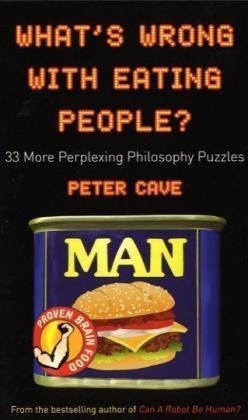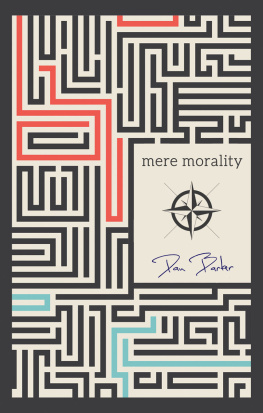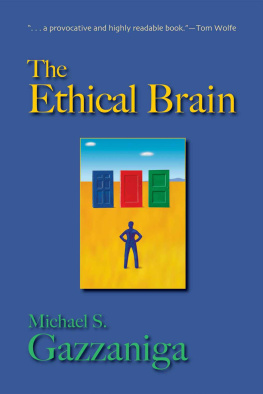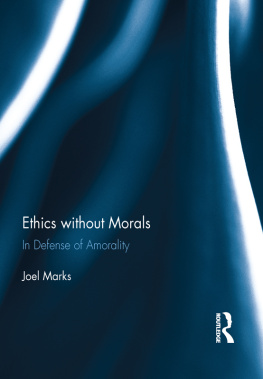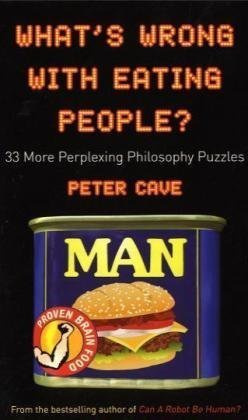WOULD YOU EAT YOUR CAT?
KEY ETHICAL CONUNDRUMS
AND WHAT THEY TELL YOU ABOUT YOURSELF

JEREMY STANGROOM

Contents
Discover the philosophical background to each conundrum and what your responses say about you
You had been happily married for 14 years when it happenedyour head was turned by a hot young thing you met on Facebook. Well, at least you thought youd met a hot young thing, but when you met for what you hoped would be a clandestine affair of the flesh, your date turned out to be a surprisingly unattractive trucker from New Jersey.
Chastened, you rushed back home, only to find that your spouse had been through your email. Happily there was nothing there too incriminating. Unhappily you are now troubled by a guilty conscience, and your spouse is getting suspicious. Should you confess all?
Part of the interest of a moral dilemma, such as this one and the others like it featured in this book, is that how we deal with it tells us something about our general approach to morality.
Utilitarianism
Perhaps, for example, you think that the key issue here is whether or not you will make the world a happier place by confessing to your spouse. If so, then your moral approach is utilitarianthat is, it is in accordance with the idea that the moral worth of an act is determined by how it contributes to the balance between happiness and unhappiness aggregated across everybody.
This might sound a little complex, but it is summed up succinctly by the phrase: the greatest good for the greatest number of people. So if confessing to your spouse results in more total happinessor goodthan not confessing, then it is right to confess.
Utilitarianism has its origins in the work of the 18th-century philosopher Jeremy Bentham. He noted that people tend to act in their own interests, which mainly involves pursuing pleasure and attempting to minimize pain. Individual human happiness, therefore, consists in making sure that you have more pleasure than pain; which in turn means that in order to maximize human happiness overall, you have to achieve as great a balance of pleasure over pain as possible for the greatest number of people. This is Benthams Greatest Happiness Principle. So in determining how we should act, we must:
Sum up all the values of all the pleasures on the
one side, and those of all the pains on the other.
The balance, if it be on the side of pleasure, will
give the good tendency of the act upon the whole
This focus on the effects of an action means that utilitarianism is a consequentialist theory: the worth of an action is determined by its outcomes.

Deontological Ethics
Although consequentialism is highly influential in the world of ethical philosophy, it is not the only way to approach moral issues. Thus, for example, it is possible you think that it would be wrong to lie to your spouse about your encounter with the trucker, regardless of the consequences. Lying is just wrong. If so, then it is likely youll have some sympathy with what are called deontological approaches to morality.
Deontological ethics, in contrast to the various stripes of consequentialism, holds that actions are not justified by their effects, but by whether or not they are in accordance with a moral norm. In other words, deontology holds that actions are intrinsically good or bad, regardless of their consequences: a moral agent is duty bound to obey what is right, even if it is at the cost of some terrible outcome.
Immanuel Kant is perhaps the most important philosopher to have espoused a deontological moral philosophy. For Kant, acting morally is not a matter of assessing consequences, but of acting out of respect for the moral law. The moral law has a categorical form: Do this or Dont do that. Therefore, if lying or deception is prohibited, as Kant believed them to be, it would be wrong not to confess to your spouse, even if the consequences of confessing were disastrous.
Virtue Ethics
A third way of thinking through moral issues stresses the cultivation of character or virtue. The virtue ethics approach is rooted in ancient Greek philosophy, and particularly the ideas of Aristotle, who thought that virtue consists in acting in accordance with reason by always choosing the mean between the extremes of excess and deficiency. The moral virtues that Aristotle identified in this fashion included justice, fortitude, courage, temperance, and prudence.
Virtue ethics does not provide a rule book for action in the same way as some other moral frameworks, but it is far from empty in terms of what it tells us about how we should behave. People should act in a way that is most likely to contribute to the cultivation of a virtuous character. A virtue ethicist will not necessarily conclude that youre behaving badly if you deceive your spouse on this particular occasion; however, if you consistently deceive him or her, across a range of issues, then Aristotle certainly, and likely other virtue ethicists, would conclude that your behavior was wrong.
There are no easy answers to the issues raised by the moral conundrums and dilemmas featured in this book. In a sense, this is the whole point. By raising difficult questions it shows us how we tend to think about ethics and the like. As you work through the book, you will find things out about philosophy, ethics, your philosophical world view, and yourself. No doubt youll be infuriated at times, and discombobulated at others, but above all the hope is that youll enjoy yourself and be stimulated by the journey.
HOW TO USE THIS BOOK
This book features 25 ethical conundrums that are designed to illuminate various issues in moral philosophy, and at the same time shed some light on your own moral commitments. The conundrums are set up in the first half of the book, and each is associated with a particular moral question, which you should attempt to answer. The second half of the book features an analysis of each conundrum, which discusses the philosophical background of the issue under consideration, possible solutions to the question posed, and some of the implications of those solutions.
The best way to read this book is conundrum by conundrum; read one, think about the issues involved, attempt to answer the question, and then turn to the back of the book to see how your answer stacks up against the philosophical and ethical issues raised. You will also find a morality barometer associated with each conundrum, which will tell you a little bit about what your response indicates about your own moral framework.

Moral conundrums that have perplexed
some of the greatest philosophical minds
Would You Eat Your Cat?
Is It Always OK to Look at Your Own Photos?
Is It Better to Be a Sexist Than a Misanthrope?
Are We Morally Obliged to End the World?
Are We Really Sorry That Hitler Existed?
Should We Sacrifice One to Save Five?
We like to think that moral questions have clear answers. It is true that we will probably accept that different people will come up with different answers, but many of us will be discomforted by the idea that some moral questions have no obvious answers at all.
Next page




